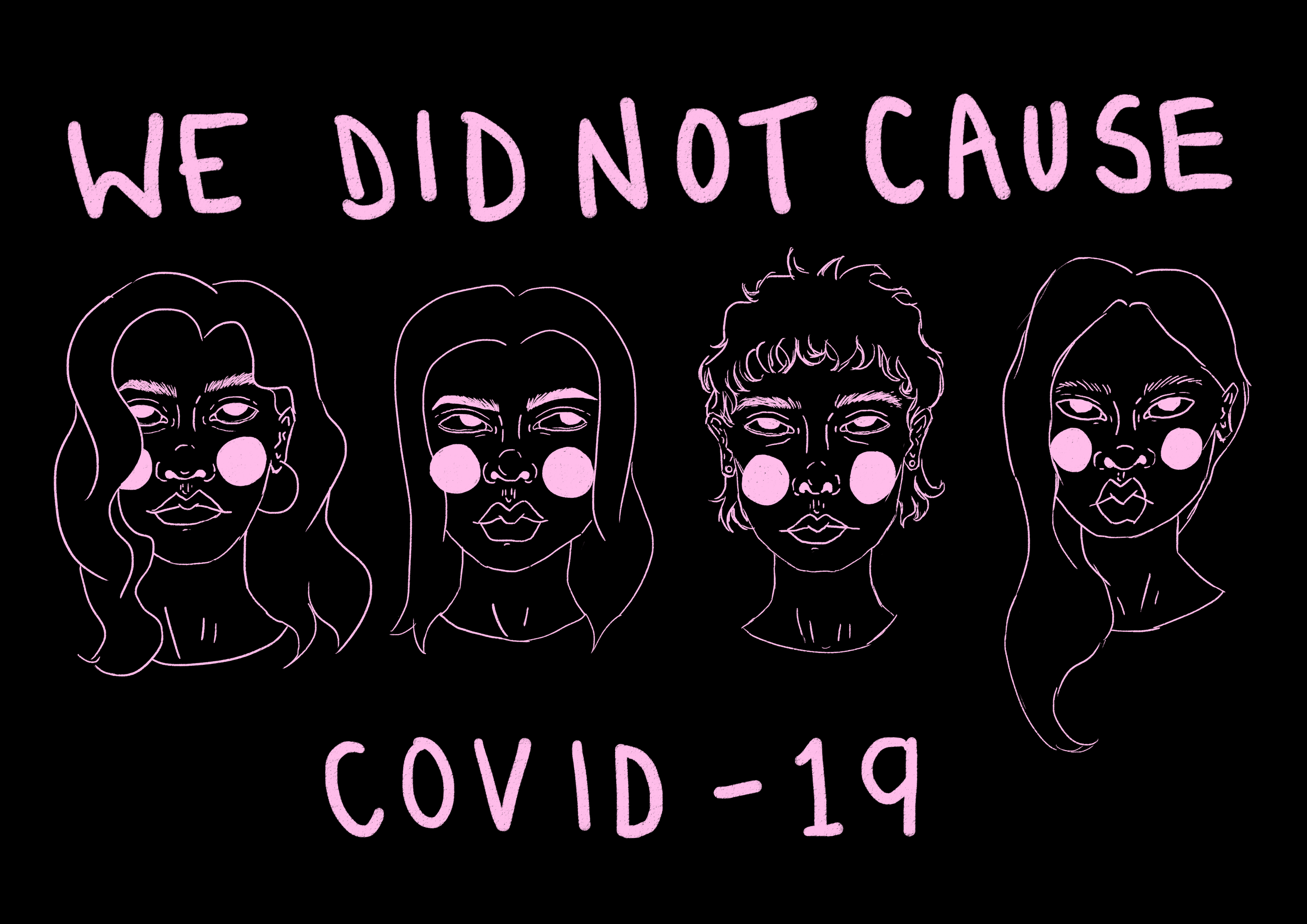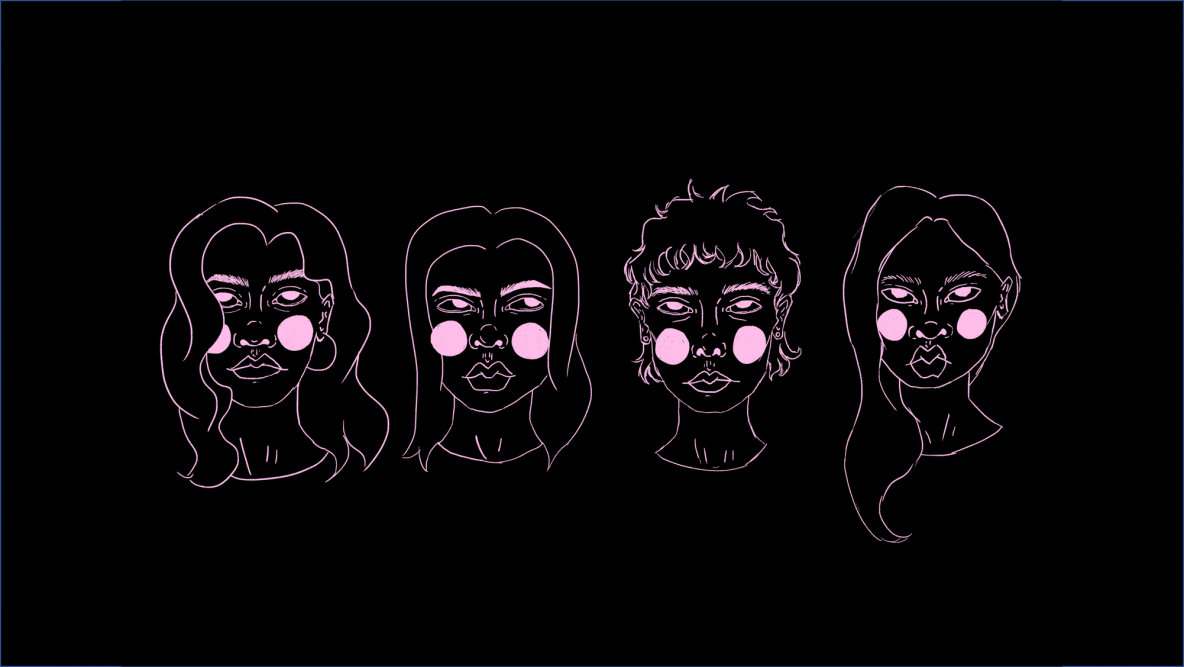Is Coronavirus spreading racism and prejudice across the globe?
By Milla Alexander / 31 March 2020

Illustration by Jade Pughe
We would like to think that during a pandemic like COVID-19, communities would come together and show support and solidarity, and for the most part we have. But in some cases, what we have seen is very different.
People are stockpiling food and toilet roll as if they may never see another supermarket open again, thinking only of themselves. People are flocking to public spaces in large groups while knowing the spread of this illness is likely to impact the most vulnerable, and the NHS may crumble under the weight of their selfishness. And in the midst of all this, racism and prejudice are rife on our streets and our screens.
Since coronavirus appeared in the UK, there has been an increase in xenophobic attacks across the country
From a group of Chinese people being attacked while standing outside student accommodation to the famous footballer Dele Alli mocking an Asian man on Snapchat, to a Vietnamese curator being dropped from an exhibition, this pandemic has brought to light the xenophobia and racism that’s embedded in British society.
But why? Is this just another excuse people are using to express their true feelings towards people of different ethnicities? Are Trump’s hate-mongering speeches when referring to the virus as “the Chinese virus” filling people’s minds with fear? Has the long-standing ‘othering’ of Chinese culture, particularly with food, convinced people that they are the cause and carrier? And with the help of sensationalist media spreading misinformation, is it any wonder that people are becoming infected with racist opinions?
The outbreak of acts of prejudice and violence toward marginalised communities during pandemics has been prevalent throughout history. America has a long list of pandemics that led to finger-pointing at various immigrants. These associations led to extremely harsh practices around immigration.
Chinese food establishments were hit hard as soon as word of the virus began to travel.
These baseless assumptions that eating from a Chinese takeaway could infect you with coronavirus are particularly worrisome. The fact that the Prime Minister is not addressing racist attacks is unacceptable. Boris Johnson’s inaction with stricter lockdown measurements is a primary reason the disease is spreading further and further. His refusal to speak out against xenophobia during this time is why it has no signs of slowing down.
Ignorance and misinformation have played a role in the rise of xenophobic attacks, and this speaks to the power of social media and technology today. As confounding as it is to think that there are people out there that feel justified in their deplorable actions, we must admit that for the most part - humans habitually live in echo chambers.
Marginalised people and those who are not prejudiced or xenophobic are likely to follow and be surrounded by other like-minded people. Flip that around, and you can imagine Facebook pages, hashtags and movements, and WhatsApp groups dedicated to malign anyone that is other. When you’re not exposed to people and information that could educate and enlighten you, you’re more likely to be limited and even primitive within your behaviours.
Does this make it acceptable? Absolutely not. Can we change the mind of every racist or xenophobe? Unlikely. But what we can and should do is widen our circles and sphere in trying to change hearts and minds. If we can’t go out and march or rally for the sake of people who are vulnerable to more than coronavirus, what we can do is use our platforms to combat and contradict the dangerous information out there that gives basis to violence.
Art by
Words by
Share this article

